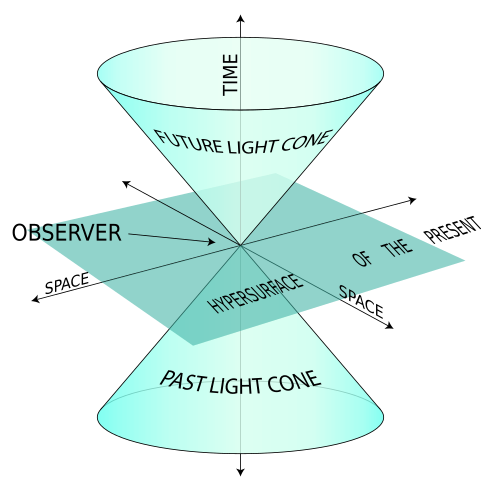Sure...
Please define what you mean by "self deterministic?
The right of a people to
self-determination is a cardinal principle in modern
international law (commonly regarded as a
jus cogens rule), binding, as such, on the
United Nations as authoritative interpretation of the Charter's norms.
[1][2] It states that people, based on respect for the principle of equal rights and fair
equality of opportunity, have the right to freely choose their
sovereignty and international
political status with no interference.
[3]
The concept was first expressed in the 1860s, and spread rapidly thereafter.
[4][5] During and after
World War I, the principle was encouraged by both
Vladimir Lenin and United States President
Woodrow Wilson.
[4][5] Having announced his
Fourteen Points on 8 January 1918, on 11 February 1918 Wilson stated: "National aspirations must be respected; people may now be dominated and governed only by their own consent. 'Self determination' is not a mere phrase; it is an imperative principle of action."
[6]
During
World War II, the principle was included in the
Atlantic Charter, signed on 14 August 1941, by
Franklin D. Roosevelt, President of the United States, and
Winston Churchill, Prime Minister of the United Kingdom, who pledged The Eight Principal points of the Charter.
[7] It was recognized as an international legal right after it was explicitly listed as a right in the UN Charter.
[8]
The principle does not state how the decision is to be made, nor what the outcome should be, whether it be
independence,
federation,
protection, some form of
autonomy or full
assimilation.
[9] Neither does it state what the
delimitation between peoples should be—nor what
constitutes a people. There are conflicting definitions and legal criteria for determining which groups may legitimately claim the right to self-determination.
[10]
By extension, the term self-determination has come to mean the free choice of one's own acts without external compulsion.[11]
Wiki: https://en.wikipedia.org/wiki/Self-determination
Yeah I can go with the above. We learned all this in primary school. What about you?
Please define what you mean by "genuine freewill"?
Freewill that isn't indeterminate.
In a deterministic universe there simply isn't any in-determinism.
true, which is what I stated in my OP
There is no issue to deal with.
So please can you explain what issue you see there being with the existence of something that doesn't exist in a deterministic universe?
Or are you referring to the issue of the appearance of in-determinism?
Nope....I referring to the position that determinists such as yourself believe that in-determinism does indeed exist as an illusion and what is more a predetermined illusion at that.
Please explain what you mean by "a partnership of causation..."?
How does this differ to a cog in a watch being a "partnership of causation" with the watch?
you refer to two passive systems a cog and a watch. Humans are proactive, dteremining systems that co-determine what has been predetermined by those passive systems.
Assuming, of course, that we're still talking about a deterministic universe?
I see you still haven't read the OP..... try again...nothing to assume... in plain English, black and white
You are simply assuming the existence of "genuine freewill" and saying that since the universe is deterministic that genuine freewill must be possible in such a universe.
The issue of "co-determinism" seems to be irrelevant.
then you don't understand what you read....
The fallacy in your argument is that you are begging the question (genuine freewill exists).
No, I wrote:
For the sake of brevity let us assume for the moment that the Human being is self deterministic. And that he has genuine freewill. A commonly held proposition by most humans.
How do we deal with the issue of in-determinism in a deterministic universe?
By understanding that the relationship that humans have with the universe surrounding him is co-deterministic, a partnership of causation with said universe to generate a single event you can understand that the universe's determinism in conjunction with a free-willed self determining Human, does indeed create events that are fully determined by both Human and universe together simultaneously.
So on that basis free will does not violate the determinism of cause and effect as it is an active part of it.
as an introduction to a thread that offered discussion on co-determination. The point of that paragraph being that "free will does not violate the determinism of cause and effect".
The issue, of course, is that while your logic may be valid (question begging usually is) in this case you have not demonstrated that is is sound - i.e. you have not demonstrated that "genuine freewill" exists.
Show that genuine freewill exists.
Define your premises adequately and then show why they should be accepted.
I read it.
I understood it as far as it is possible for it to be meaningful.
And it is flawed for 3 main reasons:
1. The premise that genuine freewill exists is not demonstrated nor accepted - so the argument is not shown to be sound
2. The conclusion is simply begging the question
3. You are theorising a "co-determinism" that logically is no different than any components of a deterministic system: e.g. cog in a watch - so what does the notion of "co-determinism" add to our understanding?
Further there are other terms requiring definition and explanation, as indicated.
Fine, you are entitled to your opinion. This is of course what freedom is about....
Everything you wrote and didn't write was predetermined prior to your choosing to write. You have co-determined with the available predetermined choices and determined them proactively.
So called counter factual alternatives are still predetermined yes?

